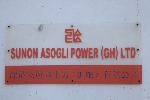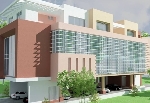Ghana’s Insurance sector records 22% asset growth as investment strategies shift
 The life insurance sub-sector led the way, with investment assets reaching GH₵7.0 billion by the end of December 2023, more than double the GH₵3.5 billion held by the non-life segment
The life insurance sub-sector led the way, with investment assets reaching GH₵7.0 billion by the end of December 2023, more than double the GH₵3.5 billion held by the non-life segment
Ghana's insurance industry reported a robust 22% growth in investment assets in 2023, bringing total assets to GH₵10.5 billion, up from GH₵8.6 billion in 2022, according to the Bank of Ghana’s 2023 Financial Stability Review.
The sector’s resilience amid challenges like the COVID-19 pandemic and the domestic debt exchange program (DDEP) underscores its adaptability to Ghana's evolving economic landscape.
The life insurance sub-sector led the way, with investment assets reaching GH₵7.0 billion by the end of December 2023, more than double the GH₵3.5 billion held by the non-life segment.
The industry continues to favour fixed-income assets across both life and non-life portfolios, though significant shifts in investment composition have emerged.
Notably, government securities have seen a sharp decrease within insurers’ investment portfolios, reflecting the impact of the DDEP.
In the non-life sector, holdings in government securities dropped 13%, bringing their share down to 27% from 38% in 2022.
Fixed deposits now comprise 23% of this sector’s portfolio, with listed securities and real estate contributing 27% and 19%, respectively.
The life insurance sector also scaled back on government securities, reducing their share to 40% from 49% the previous year.
This decline was counterbalanced by an increased allocation to real estate, which now represents 23% of the sector’s portfolio, alongside a rise in fixed deposits, now comprising 21% of total assets.
These adjustments reflect a strategic diversification in response to market dynamics, signalling the sector’s adaptability and commitment to providing financial stability for policyholders.
As the Ghanaian insurance industry expands its asset base and reallocates investments, it appears well-positioned for sustainable growth in a complex economic environment.
Trending Business

NPA boss named public sector personality of the year at Ghana Business Awards
07:44
Ghana’s DDEP 2 minimally impacts bank financials, says BoG
12:57
Dollar keeps crushing cedi as forex trades at ¢16.65 to $1
12:29
Dumsor: The worst is yet to come – IES warns
12:22
Where has your 'gbegbegbegbe' economic talk gone? – JM jabs Bawumia: Says 'economy' no more in his 'vocabulary'
12:15
Sunon Asogli denies receiving promised $30 million from Finance Ministry amid ongoing power plant shutdown
13:47
Newmont’s Ahafo South Mine maintains position as Ghana’s best company
10:07
High court overturns BoG’s licence revocation of CDH savings and loans, orders arbitration
19:19
Gov't eyes cheaper fuel from Dangote refinery to drive down prices-Hamid
09:47
Distinguished Touch announces progress in AB Liberty Heights construction to unveil ‘buy now pay monthly’ offer
10:23



